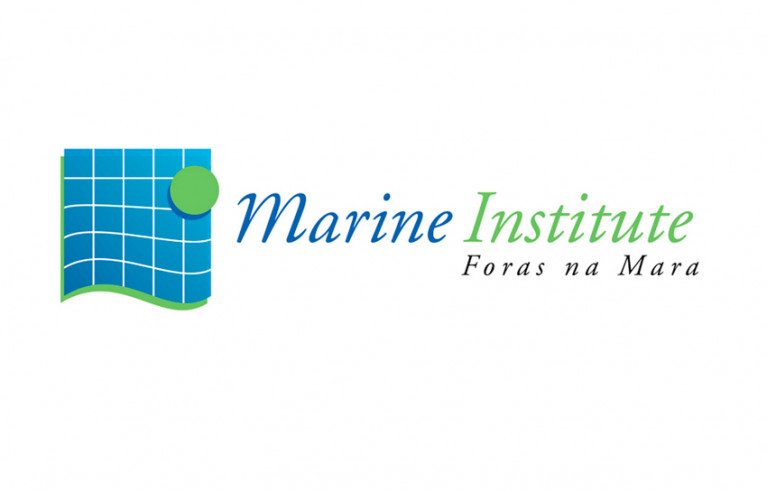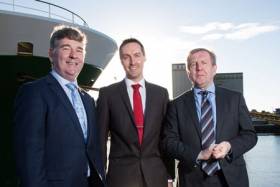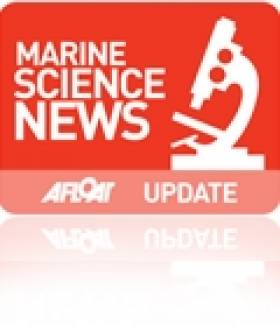Displaying items by tag: oceanography
Marine Institute Recruiting for Oceanographer
The Marine Institute is recruiting for a physical oceanographer to join its existing team of oceanographers and modellers to gather, analyse and generate services from oceanographic data.
The oceanographer will support the institute’s data collection at sea and work with data management colleagues to robustly archive, quality assure and analyse the oceanographic datasets of interest to users.
These include — but are not limited to — tide gauges, offshore weather buoys, conductivity, temperature and depth (CTD) profiles from ships, CTD from moored platforms, ocean gliders, Argo floats and acoustic Doppler current profilers (ADCP).
This temporary specified purpose contract of employment, providing redeployment cover, will run for up to 31 December 2023. The successful candidate will be on probation for the first six months.
A detailed job description is available from the Marine Institute website, and the closing date for applications is Wednesday 24 February at 12 noon.
Maynooth University Oceanographer Leads €2m Climate Change Project
#MarineScience - Marine Minister Minister Creed has welcomed the announcement of €2 million from the Marine Institute and the European Regional Development Fund for a major project on Atlantic climate change.
Led by Dr Gerard McCarthy of the ICARUS Climate Research Centre and Department of Geography at Maynooth University and guided by the goals of the Government’s national marine strategies, the international A4 Project marks a substantial investment in physical oceanography and climate change research in Ireland, and aims to improve understanding of the links between trends in Atlantic temperatures and climate change.
The project name A4 stands for aigéin (oceans), aeráid (climate) agus athrú Atlantaigh (Atlantic change).
“This funding being provided will enable Maynooth University to increase the research capacity to broaden Ireland's knowledge at a societal level, to better understand the ocean and climate change,” Minister Creed said.
“The research will contribute to national climate adaptation as well as international climate policy, supporting enhanced forecasting capabilities and contributing to adaptation and mitigation strategies and actions.
“The project is an important element underpinning implementation of the Marine Institute’s Strategic Plan 2018-2022 ‘Building Ocean Knowledge, Delivering Ocean Services’. The strategy aims to provide world-leading regional and localised forecasting outputs and services that support Ireland’s challenge in responding to changes in our ocean and climate.”
Dr McCarthy added: “Over the next five years, this project will target three areas in which substantial progress can be made including ongoing Atlantic change, sea level rise, and decadal climate prediction.
“As a small island on the edge of a large ocean, Atlantic changes impact Ireland more than any other country. When record global surface temperatures were reached in 2015, Ireland had below average temperatures due to a cool Atlantic. The reasons why Irish temperatures bucked the trend in 2015 requires a better understanding of Ireland's place in a changing climate, and for this, we need to understand the changing Atlantic.
“This important project, which I am delighted to be leading, will greatly assist in our overall understanding of this complex and fascinating area. The Atlantic’s future will differ from the rest of the world in response to a changing climate. This is primarily because the Gulf Stream system of currents, which gives Ireland its mild climate, is predicted to weaken.
“The time is ripe to build upon the observations of Ireland’s ocean made by the Marine Institute over the past decades to understand Ireland’s place on the edge of the changing Atlantic.”
The project will be supported by Prof Peter Thorne, director of the ICARUS Climate Research Centre at Maynooth University with Prof Andrew Parnell, Dr Niamh Cahill, Dr Conor Murphy, and Dr Rowan Fealy at Maynooth University. Maynooth’s lead team will utilise approximately two-thirds of a total €2 million funding with the balance utilised by co-investigators in Trinity College Dublin led by Dr Robin Edwards.
The A4 Project’s international partners are the National Oceanography Centre, UK; Scottish Association for Marine Science, UK; University of Bremen, Germany; BSH, Germany; University of Hamburg, Germany; National Center for Atmospheric Research, USA; Met Office, UK; and Tufts University, USA.
Professor Ray O’Neill, vice president for innovation at Maynooth University, said: “This major funding award reflects the global significance of the climate science research being undertaken at the ICARUS Climate Research Centre at Maynooth University.
“Enabled by this funding, Gerard McCarthy’s expertise, and that of his national and international partners, will significantly advance understanding of how Ireland and the Atlantic region more broadly will be affected by climate change in the years ahead.”
The project team will use advanced geological techniques to reconstruct Ireland’s sea level, and combine these estimates with the modern National Tide Gauge Network managed by the Marine Institute, to better understand how sea levels have been changing around Ireland and the edges of the Atlantic.
The A4 Project will also bring to Ireland the emerging field of decadal climate prediction, which will lead to improved estimates of the future climate over the period of a decade by using the predictability of the ocean.
A recent report by the Intergovernmental Panel for Climate Change on the dangers of 1.5C warming highlighted many risks including that of sea level rise. “Every nation needs to understand its own vulnerabilities to sea level rise as the effects are not the same everywhere,” Dr McCarthy said.
This project is funded by the Marine Institute under the Marine Research Programme 2014-2020, co-funded by the European Regional Development Fund.
US Schools Send Mini Sailboats Across The Pond
Mini sailboats could soon be spotted in Irish waters if a US school project goes according to plan.
The Bangor Daily News in Maine reports on the Educational Passages programme, through which middle school students will equip miniature sailboats with GPS trackers and set them out to sea to follow their progress across the Atlantic.
In previous years the programme - which is designed to give youngsters hands-on experience in maritime professions and skills such as oceanography and chart reading - has sent its self-steering boats as far as Portugal.
This year's students are hoping to catch the Gulf Stream to send their boats to Europe. The boats will be launched by trainees on the Maine Maritime Academy's training vessel State of Maine, which will also be retrieving a boat from a previous project that was recovered in Ireland.
































































